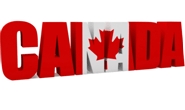Canada

September 6, 2018
Canada Holding Firm on NAFTA Requirements
Written by Sandy Williams
Canada is back in the NAFTA negotiations, but dispute settlement and cultural exemptions continue to be sticking points for a new agreement.
Prime Minister Justin Trudeau has stressed that Canada will hold firm on requiring a dispute resolution mechanism like Chapter 19.
“As I’ve said, we will not sign a deal that is bad for Canadians,” said Trudeau in a press conference Tuesday. “And, quite frankly, not having a Chapter 19 to ensure that the rules are followed would be bad for Canadians.”
The cultural exemption would preserve what Canada considers “cultural industries” such as preventing American networks from buying Canadian media affiliates.
“It would be a giving up of our sovereignty and our identity and that is something that we simply will not accept,” Trudeau added. “So, we’ve made it very clear that defending that cultural exemption is something that is fundamental to Canadians. Again, we will not sign a deal that is bad for Canada and, quite frankly, eliminating a cultural exemption would be bad for Canadians.”
Canadian union Unifor sides with Trudeau on both measures and emphasized the need for a trade dispute mechanism with the United States. Said Jerry Dias, national president of Unifor, “Would anybody sign a deal with the Trump administration without a clause that says we can appear before independent arbitrators to get a fair shake? I mean, really?”
Trudeau said he would consider more flexible trade measures for dairy products, but will not cross the “red line” on trade dispute and cultural exemptions. Canadian tariffs on dairy products from the U.S. have been a source of frustration for President Trump.
Trump called the negotiations “very intense” with Canada. “We’ll see how it works out. If it doesn’t work out, that’s going to be fine for the country, for our country,” he said. “It won’t be fine for Canada. But we love Canada, they’re our next-door neighbor, we’ve had a great relationship with them for many, many years.”
Trump told Republican congressional leaders on Wednesday that he expects a deal with Canada in the next two to three days.
“We’ll see how it all works out,” Trump said. “We don’t want NAFTA. NAFTA has been very bad for our country. But we’ll have a trade bill.”
Last week, Trump warned Congress on Twitter not to interfere with NAFTA negotiations “or I will simply terminate NAFTA and we will be far better off.”
Congress has complained that it has not been consulted in the negotiations and reiterated the need for a trilateral agreement rather than moving ahead with the bilateral agreement with Mexico.






